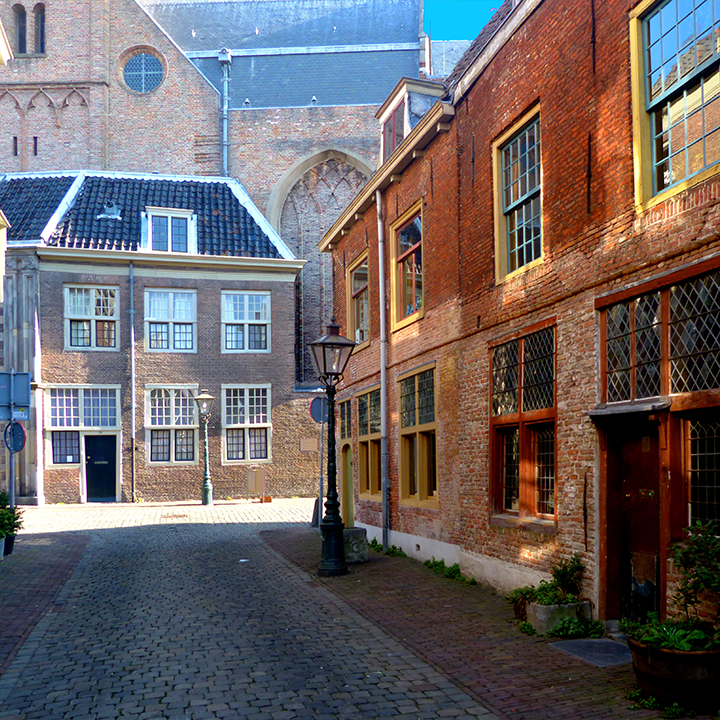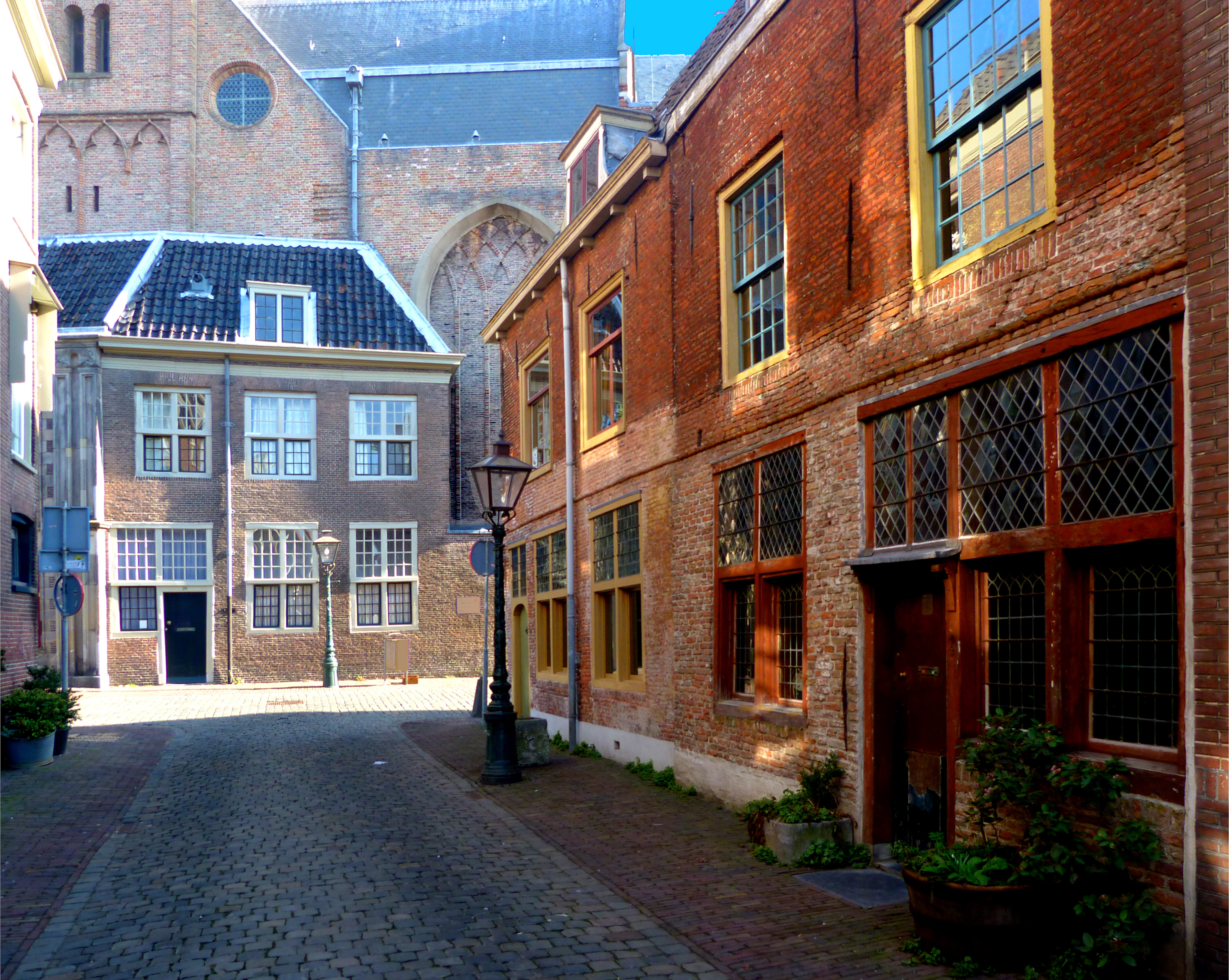Interpreting root causes for significant historical events
During the Plymouth 400 forum last month Michaël Roumen, director of Cultuurfonds Leiden, gave a sweeping overview of the places where the emigrants lived, worked and prayed. The streets, garden, and estate they lived in, and most importantly, Pieterskerk, remain unchanged since 1620 when the voyage took place. While here in Plymouth we can point to Leyden Street as being the location of the first “main street” in continuous use in the original 13 colonies, it does not in any way resemble the fabled street trod upon by the settlers in 1621.
In our exhibit Plymouth 1620-2020 visitors will see how the Leiden experience informed the Pilgrim’s decision to establish a new colony where all the inhabitants shared a zealousness for their faith. Their decision took place in Leiden, which allowed open discussion of religious debates, such as the one their pastor Robinson participated in around 1616.
A flythrough animation of this exhibit presented at the forum by Edward Malouf of Content•Design demonstrated the variety of experiences that keep the visitor engaged, beginning with the Wampanoag and ending with Plymouth the 21st-century city. The Leiden experience is yet another layer in the incredible saga that makes the story of Plymouth Colony one for all ages.
The English separatists left the peace and relative security of one of Europe’s most enlightened cities, Leiden, to forge a new settlement of their making in a foreign land inhabited by people very different from themselves. While life in Holland hardly resembled what they left behind in Scrooby in the East Midlands of England, the congregation of John Robinson was free of persecution. Several members had positions of distinction, William Brewster taught English at Leiden University while John Robinson enrolled there to pursue his doctorate. However, most of the emigrants toiled in the handicrafts. They lived together a small estate near the famous Pieterskerk, a cathedral built in the 15th century.
In his great history “Of Plymouth Plantation” William Bradford describes in detail their reasons for departing; the hard work required to maintain their standard of living (as modest it was); loss of the younger generation to becoming soldiers or seafarers in the Dutch service; or worse—
“…tending to dissoluteness and the danger of their souls, to the great grief of their parents and dishonor of God.”
He ends with a grand vision of setting up elsewhere
“…advancing the gospel of the kingdom of Christ in those remote parts of the world; yea, though they should be stepping-stones unto others for the performing of so great a work.”




